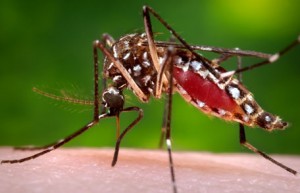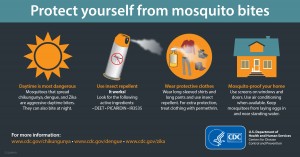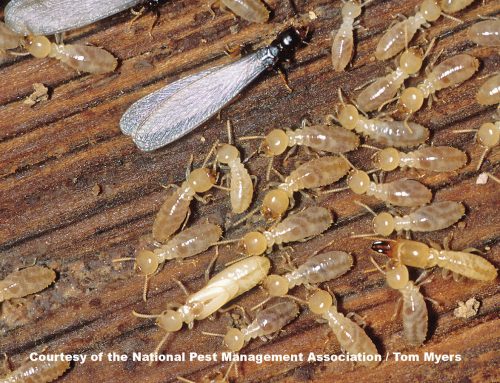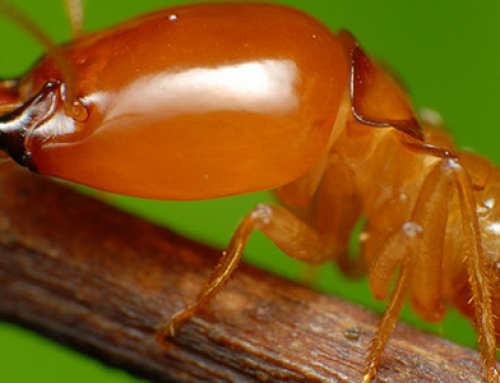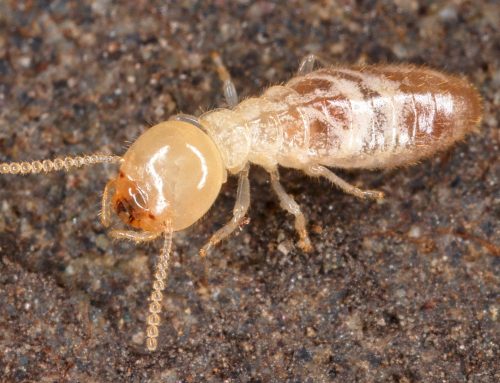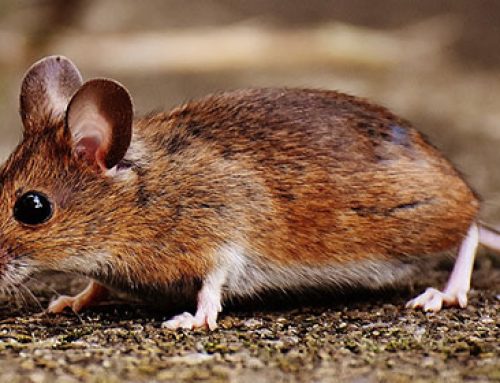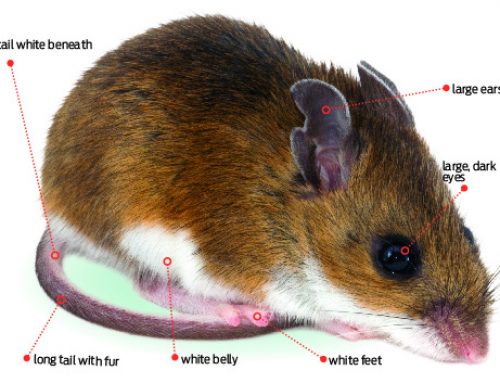Aedes aegypti and Aedes albopictus mosquitoes are common mosquitoes found throughout much of the world. Because they carry several diseases and can transmit diseases easily, these insects and their behavior are very dangerous. It’s important to understand how mosquitos behave and how they spread so that you can take preventive measures and avoid becoming infected with diseases such as chikunguya, dengue or zika virus. These diseases are becoming less foreign in the United States. Learn how to protect your home in Long Island and the Greater New York area from these pests.
Know some characteristics of mosquitos
- Female mosquitos lay their eggs along the walls of water-filled containers.
They remain stuck to these containers like glue, until scrubbed off.
- A female mosquito can lay several hundred eggs at one time.
- It only takes a week for a mosquito to hatch and become an adult.
- Mosquitos spread disease by biting a person infected with the disease and then transferring it to someone else through bites as well.
- Adult mosquitos live indoors and outdoors.
- They like to bite during the day but will bite at night as well.
- Just a few infected mosquitos can cause an outbreak.
Take preventive measures to protect your home, your family and your community
Protect Yourself to prevent bites – the CDC has provided a list of products that are effective in preventing mosquito bites. These products are high in levels of special ingredients (DEET, Picaridin, Bayrepel, Icaridin, etc.) that keep mosquitoes off. Some of them include OFF, Skin So Soft, Cutter, Repel and more. You do want to care for following instructions when using these products. Products should be worn over clothing and applied after sunscreen if used. Other options would be to treat clothing using permethrin.
Protect Your Home – It’s very easy to lose track of what may be causing mosquitos to spread, but taking these necessary steps can prove to aid in prevention.
- Repair cracks or gaps for septic tanks
- Cover open vent or plumbing pipes of septic tanks. Use wire mesh with holes smaller than an adult mosquito.
- Keep mosquitos out by using a screen door with holes smaller than an adult mosquito
- Use air-conditioning when possible.
Eliminate standing water
- Check the perimeter of your property for any standing water or puddles. You will need to get rid of these and take the necessary steps in order to prevent mosquitos from multiplying.
- Get rid of water in items that are holding water: tires, buckets, planters, toys, pools, birdbaths, flower pots and trash containers. You will need to turn these over, some how empty out the water from these containers and scrub them down.
- Close containers tightly that are meant to hold water so that mosquitos do not have an opportunity to lay eggs:
- For containers that don’t have a lid, make sure the screen used as a cover, has wire mesh holes smaller than an adult mosquito.
Traveling and mosquito bite prevention
As we look forward to vacation time, many of us have these mosquitos and their dangerous diseases at the back of the list. But, knowing ahead of time can help you plan for a great trip instead of for a trip to the hospital. Here are some tips to help you prepare for that exotic vacation:
- Use mosquito netting if your accommodations are open air, are not well-screened or if traveling with a baby. Keep mosquitos out of your hotel or lodging are. Make sure your rooms have air conditioning or are well screened.
-
-
- You can purchase netting online or at your local outdoor store
- WHOPES approved bed netting (Pramax) is compact, rectangular, has 156 holes per square inch and is long enough for tucking under the mattress.
- Permethrin-treated (an insecticide that kills mosquitos) bed nets provide more protection than untreated nets. Do not wash bed nets or expose them to sunlight to prevent the insecticide from breaking down.
-
- Cover Up and treat clothing. Wear long-sleeves and pants when possible if you know your destination is prone to mosquitos. Some clothing may be very thin and mosquitos may be able to bite through. In such cases, you should treat clothing with Permethrin insecticide for more protection. Make sure not to use the insecticide directly on your skin.
- Bring mosquito repellent – Make sure you are using an EPA-approved mosquito repellent. Follow the instructions on the label closely, applying the repellent over the clothing.
